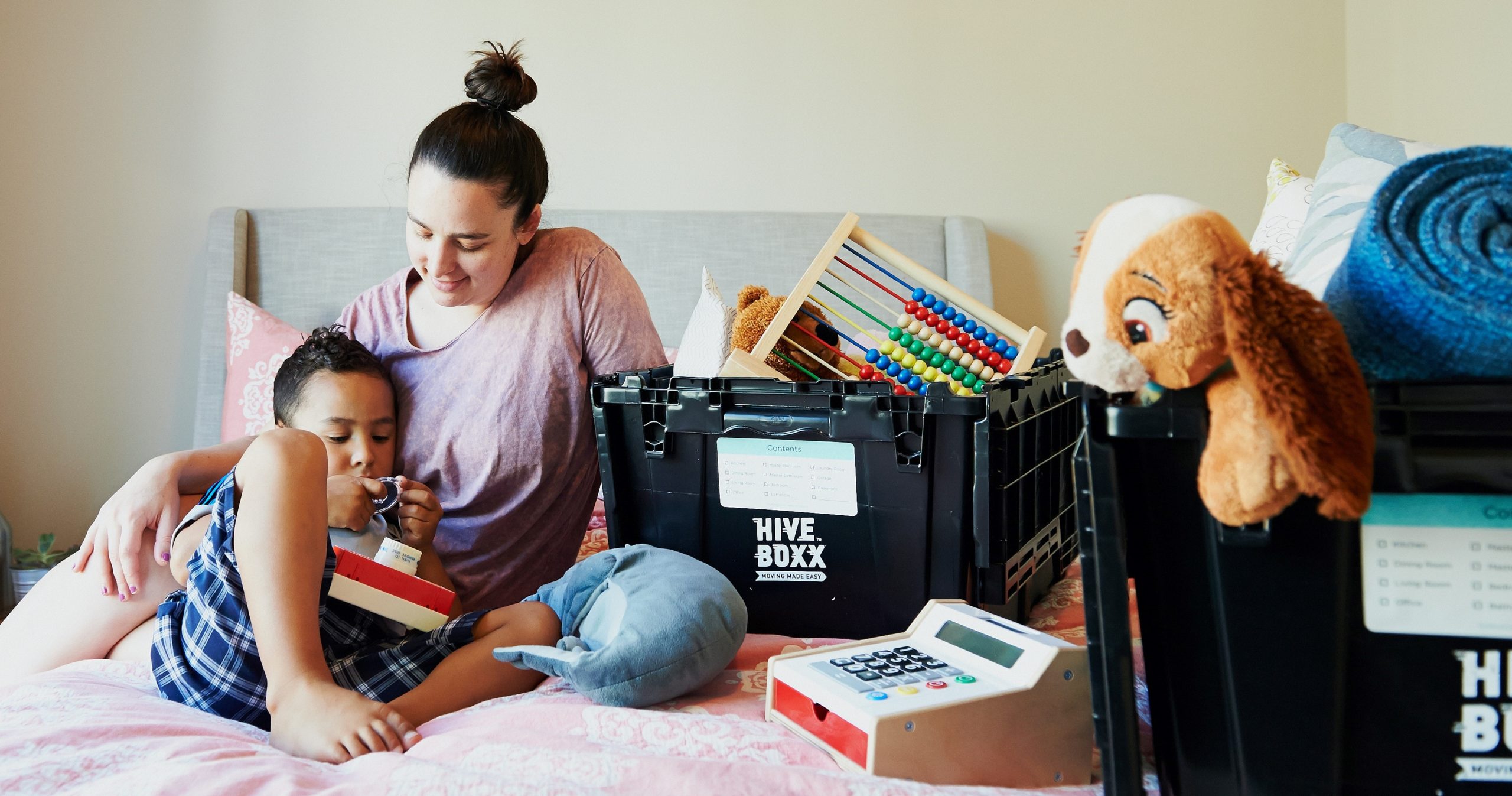
by rossanahead | Feb 9, 2017 | career, children, Existing Business, family
By Aileen Carreon
As Rose Tanalgo-Meim of Bacolod Chicken Inasal (BCI) has realized, combining a career with motherhood is not an easy task but a juggling act that takes time to master. By making the necessary adjustments and designing effective systems, Rose has gotten better at performing the dual tasks of taking care of her brood of five and handling the marketing, communication, and customer care requirements of their family food business.
Bacolod Chicken Inasal, which Rose manages together with younger siblings JM and Bing, started as a take-out counter in EDSA Central in 1993. The initial eight-seater, open-air counter was eventually replaced with an air-conditioned restaurant upon the prodding of a growing clientele. In 1998, the siblings opened a second restaurant along Jupiter Street in Makati, which was soon followed by a string of new branches in Metro Manila, mostly located in major malls. In the early 2000s, a commissary was put up and systems were put in place as their operations continued to grow.
It was during this time that Rose got married to Paul and soon after became pregnant. “We were heavy on the Ysabella’s Chicken (a tie-up with TV network ABS-CBN) and opening several branches,” recalls Rose. Being young, energetic, and healthy, she didn’t take time out from work even as her family grew.
“When I had my first baby, I would bring her to the office. I even tried to breastfeed and bring the pump to work. But you don’t want babies to be in the car all the time or be in a building. So I studied how I could best manage.”
Rose concedes she was not good at it in the beginning. “I was still a workaholic. I wanted to cover so much and would lose track of time. You go home tired. My kids remember mom trying to read them a story then in the middle of it, falling asleep.”
As her kids got older, Rose made a conscious effort to change her work habits. “I can’t have late nights and come home after dinner or spend the whole day out. I can’t afford to just see my children in the morning before they leave for school.”
Establishing a Home Office
She now maintains a work station at home. “I target three times a week of physically being in the office. But there are times it’s less, and other times it’s more. It all depends on the schedule of the kids and the requirements at work.”
Technology has made it easier to manage the business from home, like dealing with suppliers for marketing and communication materials. Discussions and brainstorming are done through messenger.
On the days she reports to the office, Rose makes sure to be home by dinnertime at the latest. The same goes for her husband. In the morning, she wakes up early to get the kids ready for class and have breakfast together as a family. She then sends the kids off to school with words of encouragement.
Rose is also a committed parent volunteer in school, for which she gets to spend additional time with her children, four of whom are in grades six, five, four, and two, while the youngest is in kindergarten.
Setting Up Effective Systems
To keep track of the needs of her two daughters and three sons, Rose uses a white board system at home. She has a small board for plotting the activities of the kids for the whole month, like field trips, exams, and varsity practices, and scheduling in major family events like birthdays. A bigger one is used as a weekly calendar that details the daily activities of her kids each week.
“The ultimate goal is for each of them to be responsible for their own work. But at their ages you still have to remind them. If there’s a quiz scheduled for the week, we can remind them to review earlier. By knowing the kids’ activities, like violin lessons, varsity practice, or competition, we’re also guided as to the time they should be picked up from school,” shares Rose.
She has also implemented what she calls the four o’clock system. Each school day, at four in the afternoon, Rose checks her kids’ assignment notebooks, no matter where she is. “When I’m out, the yaya would take pictures of the assignment notebooks and send me via Viber. So I’m always informed.”
“I take a look at what needs to be done and gauge if they would need tutorial assistance, because I know my kids’ capabilities and weaknesses,” she adds. “That’s my system, to first check what is needed so I can support it. If they need to bring stuff to school, I can pick it up on my way home or give the necessary instructions to our help.”
Rose acknowledges the importance of a good team of helpers and reveals that she hires based on attitude rather than skills, which can be learned anyway. “You need a team that you can trust and that have values aligned with yours because they’re part of the family.”
At work, her dependable BCI staff makes things easier. “We have a very organic corporation. We have employees who are from Bacolod and who have been with us since the start. They are trustworthy and dependable. Each one has a specialization so we know whom to tap for specific requirements. It’s good to have a team to back you up.”
Importance of Family Support
The support of her family is also invaluable. “I’m on top of things, so much so that I know every detail in the menu, the posters. If you move the logo, I’ll know it,” she says. “I’m so thankful that in our family corporation, it’s OK to not be present in the office for as long as you are delivering your work.”
In two years’ time, Bacolod Chicken Inasal will be celebrating 25 years of operation. That’s quite an achievement for three siblings who were fresh out of college when they put up a food business that introduced to Metro Manila residents the chicken inasal and other dishes they loved while growing up in Bacolod.
“We are very blessed to have been able to maintain the business this long and to still be poised for future growth. I’m lucky to be in a family business because my work becomes an extension of my relationship with my family,” says Rose.
While her top priority is her family, she also highly values her work and thinks that no business will thrive if the owners are not involved. Besides, she believes that managing the business well today is ensuring that the next generation inherits a thriving family enterprise years from now.
Photo: Ramon FVelasquez

by rossanahead | Mar 15, 2012 | children, Education, family, parenting
By Maridol Ranoa-Bismark
“Good evening, Chelo. This is Ben’s mom. Sorry to disturb you at this time but he has not replied to my message. May I call you?”
I sent this panicky text message at 11 p.m. and Chelo, my son’s friend, replied, “Yes Tita.”
After explaining my problem, Chelo must have sprung into action. She contacted her network of friends. My son, who is in his junior year at the University of the Philippines, was on the phone in no time at all! Sorry, he told me. He was in a dead spot at the debate tournament and didn’t get my message. But he’s fine and will be home in an hour or so. I went to sleep smiling, grateful to Chelo. She must have been a mom in her past life.
Now you see why I have the cellphone numbers of around five of my son’s friends stored in my directory. I know deep in my heart that I will need them, especially during the wee hours of the night, and the morning. But having the numbers of your son’s friends is not good enough. You also have to be in good terms with them. It doesn’t take much: a smile, a hello, an offer to give them a ride, and the occasional get-together in your house. This way, they will warm up to you and even tell you untold stories about your son. Is he taking life too seriously? Does he need to loosen up?
Sometimes we parents act like bulls in a China shop. No matter how much we love our children, we do not realize that we’re just charging into their world and breaking valuables along the way. My son’s friends see another side to him that I, his mom, can’t see. They give me a fresh way of looking at my son. They don’t treat him like a son but as an equal. And that’s just what I need, even with my grown-up son. Now, I see him the way his friends do. And I can’t tell you how happy that makes me. Now, I know that I have to advise him to slow down and enjoy his youth, even if I don’t know exactly how he can do that with a worried mom like me around.
If you can’t beat ’em, be friendly with them. I don’t mean attending their parties or joining them for lunch. I mean just letting them know that they can count on you when they need you.
Now that my son is always away from home, spending more time with friends and giving monosyllabic answers to my questions, I know can still have an idea of how he’s doing through the people he hangs around with.
And I can only cross my fingers that he chooses his friends well the way I advised him to. So excuse me while I check my phone directory again and see if I missed any name on the list.
Photo by Tim Marshall on Unsplash

by rossanahead | Mar 9, 2012 | career, children, Education, family, grandparenting, woman
By Jane Santos-Guinto
It was my grandfather Lolo Manny who taught me how to read. He was a journalist for the South China Morning Post, one of Hong Kong’s two largest English newspapers at the time. But on weekends, he would teach me the rudiments of consonant-vowel-consonant blending.
Lolo comes from a family of educators. Both his parents were public school teachers in Agusan del Norte, a province in Southern Philippines. Up until her death in the 1970’s, his mother Lola Victorina was the Dean of the Northern Mindanao Colleges. Dean Francisco Benitez of the University of the Philippines and Sen. Helena Benitez of the Philippine Normal University are distant relatives.
Lolo taught himself how to read when he was barely four in 1938. By eight, he had already read Shakespeare’s entire collection, all volumes of the Encyclopedia for Children, and the Bible. World War II had broken out and children could not go to school, so Lolo Manny took care of his own education. “There was nothing else to do but read,” he would tell us his grandchildren later.
Ironically, Lolo never completed his formal education. He had married quite young, at 20, and when one child came after the next, there really was no time to study. But because he was exceptionally bright, having been a consistent honor student and later a top-scorer in the Civil Service Exam, he went on to have a career that many would consider stellar.
For a while, he taught in a public school like his parents. But when there were too many mouths to feed out of a teacher’s pay, he went to Manila and tried his luck in his real passion—writing. He wrote for the Times Journal with some of the country’s most noteworthy newsmen. At times, it still amazes me to find out whom he had worked with. In 1967, he became the first Filipino journalist to be sent by a local newspaper to Cardiff, England for a certificate course in journalism. For a time, he was one of the writers of Sen. Benigno Aquino Jr., one of the country’s most prominent heroes.
During Martial Law in the 1970’s with eight children, Lolo grabbed the opportunity to work in Hong Kong. This is where he mastered his craft for 20 years or so. And where he would tutor us his first few grandchildren in a tiny tenth floor apartment (or flat as the British-influenced Hong Kong Chinese would call it).
I don’t know if it was out of fear that I learned to read so quickly under my Lolo’s watch. After all, he had a feisty temper, one that I had witnessed on many occasions when I was young. By five, I was writing my own stories. He would bring me to company outings and introduce me to his journalist friends. Having always been on the petite side, I would stretch out my little hand to greet his British colleagues. One time, Lolo said I told them a made-up story, The Monkey and His Briefs.
In the late 1980’s, Lolo went back to the Philippines and became the editor in chief of The Manila Times. After retirement from full-time journalism, Lolo wrote chess columns for the Philippine Star and self-published a weekly chess newsletter for the players of the Quezon City Memorial Circle’s Chess Plaza. These days, he prefers to watch cable movies and exchange jokes with his great grandchild. He has survived three heart attacks and professes he has “no desire for anything else from life.”
Sometimes I wish I were a more diligent pupil; that I followed his advice to read, read, and read more. My knowledge of geography and world affairs is so poor that I squirm every time my 77-year-old Lolo asks his pop-up trivia questions. I salute the University of the Philippines for a great education, but I still feel inept in many areas. There are so many things I wish I knew more about.
I just hope that my own children would have a trickle of Lolo’s brilliance in their blood and pray every day that they would come soon enough to meet my first teacher and greatest mentor, their great grandfather Lolo Manuel O. Benitez, Sr.
Photo by Ian Noble on Unsplash

by rossanahead | Mar 9, 2012 | career, children, Education, family, Mari-an Santos, parenting, woman
By Mari-An C. Santos
Our family is not wealthy. My father is the eldest son among eight of a welder and a housewife who worked part time. Growing up, he worked many odd jobs, mostly selling odds and ends, waiting outside a different church every day, depending on whose Novena day it was, e.g. Quiapo, Baclaran, etc. My mother is the daughter of a district school
supervisor and public school principal in Mindanao. They would scrimp and save every last centavo until the next teachers’ salary came from the government, literally making ends meet for five children.
But both my parents value education. My father was a working student all his life and so, it was no wonder that he went into economics. My mother took up nursing at the advice of her grandparents and came to Manila to work. Later, they were both employed by a top multinational corporation, where they met.
My parents worked hard to send me and my sister to a school that they deemed would teach us not only the basic R’s, but also impart positive values that they too shared. We did not always have enough money to “keep up with the Joneses” at the school, but we did manage to have all the basic school supplies and participate in most relevant school activities like field trips and class projects. As a child, I did not fully appreciate why I could not afford to buy a Trapper Keeper or the latest pair of Keds or Reeboks.
It is in hindsight, of course, that everything makes sense. My father was very strict about maintaining good grades all through my grade school and high school years. He forbade watching TV on weekday nights—even going as far as locking up the TV case so that the time was devoted only to studying. When the time came after every quarter of the school year to claim the school cards, I trembled before seeing my grades. If I had a low grade or a lower grade than the previous quarter, my father would sit down with me and find out exactly what went wrong. He was tough, as most Filipino parents are, and put a great emphasis on high grades.
In grade school, I lived up to my potential and was part of what was called the “interdisciplinary classes” from fourth until sixth grade. In our school, we took an exam at the sixth grade to find out if we could go on to high school or stay one more year in grade school. I passed the exam.
In high school, I was placed in the “honors class” where we had to excel in the academic subjects. I dreaded the end of the schoolyear, as inevitably, some of our classmates were transferred to other classes. Thankfully, I graduated as part of the same class, and among the top of my batch.
In college, even though I lived near the university and enjoyed greater freedom, I found that I took with me the drive to excel in my studies. I was a college scholar every semester and I graduated cum laude. I was so proud to have my
parents on stage to award me on graduation day. It was, after all, due to their efforts that I received such an achievement.
Even when I was working, the drive that my parents instilled in me to excel was very strong. I made the most of every opportunity to learn and to be the best that I could be—whether it was as a production assistant or as a segment producer or as a scriptwriter.
When I began to pursue higher education, it was of my own initiative, not at the prodding of anyone else. I felt that I wanted to learn more and more every day. Although I had to abandon what I started when I moved from the capital city, I found more and other ways to learn from new experiences and new people I met in new places.
Now, that I am pursuing a degree with a scholarship, I value much more the good basic foundation that I have—thanks to my parents’ efforts and the education that they helped me achieve. Without such good foundation and records, how would I get a scholarship that would enrich me and fund my day-to-day expenses? That is why I strongly believe that good education is of primary importance in every person’s life, whether we can see it at present or not. The adage is true: a good education is something that can never be taken away from us.
Photo by Alex Samuels on Unsplash

by rossanahead | Mar 9, 2012 | children, Education, family, parenting
By Maridol Rañoa-Bismark
It was John F. Kennedy who said that “a child miseducated is a child lost.”
That’s why we parents work ourselves to the bone to give our child the best education we can afford. Let’s face it, good schools – with the exception of state-run universities where admission is tough – cost a lot. But most good things do. After all, a good education, unlike a house and lot, jewelry, and the most expensive car, cannot be stolen. It stays with you forever. You can even pass it on to your children, and they can pass it on to the next generation. It’s an heirloom of a different, more lasting kind.
How many humble men have triumphed from poverty because they refused to accept their lot and sought good education as a way out of dire straits?
Former presidents Ramon Magsaysay and Diosdado Macapagal were born poor, but they worked hard at getting the education that helped make them the top officials of the land.
The father of Sen. Manny Villar, one of the richest men in the country, got a job promotion after he got a year-long scholarship for higher education in the U.S. The senator himself returned to his alma mater, the University of the Philippines, for a Masters degree in Business Administration.
Eight-division world champion and Sarangani congressman Manny Pacquaio dropped out of high school because of poverty. However, he took the high school equivalency exam that made him eligible to go to college. He is now taking up Business Management.
Manny is already on top of his game. He has everything. But he knew that getting a good education is one way of improving himself. Education, after all, as Aristotle says, is the mother of leadership. And a resume studded with degrees from reputable schools is a sure passport, not just to a job, but to a respectable position in any company.
In these tough times when competition for jobs is very keen, a degree from a good school is crucial. It will spell the difference between getting a job and staying at home, waiting for that all-important interview. It will distinguish the productive from the non-productive; the esteemed individual from the so-so. The productive ones lead more meaningful lives. They are happier since they contribute more to society. The non-productive ones turn drifters; neither here nor there in a world that’s already confusing as it is.
The choice is ours. Do we let our children’s minds go fallow by giving them education that is less than what they deserve? Or do we develop their rich imagination and quench their thirst for learning by giving them good, priceless education? Just as important, do we develop in them a love for learning that will stay with them, even after they’re done with college and earning well?
For those of us who want only the best for our children, there is no choice. It’s good education–and a love for learning–or bust.
Photo by Aaron Burden on Unsplash

by rossanahead | Mar 9, 2012 | children, Education, family, parenting, Ruth M. Floresca
By Ruth Manimtim-Floresca
One of the many things I thank my parents for is making sure my siblings and I finish college. Like my Nanay and Tatay, I believe that having a good education is a big factor in a person’s future. That is why my husband and I also dream to see our sons get good jobs or put up a thriving business someday so they can, in turn, be able to raise their families well.
Having knowledge about many things can help a person make good choices because decisions should be made after all angles are considered. This is not always possible if one has limited information. Sure, we don’t, and won’t, learn everything in school. But going through a structured educational system at least guarantees you won’t miss out as much compared to those who didn’t go to school at all, or stopped going to school earlier than they should.
Among the various advocacies I support, I particularly have a soft spot for children’s education. Hubby and I sponsor a child each through World Vision because we’ve seen how our donations, no matter how small, are making an impact in the lives of two children, their families, and their communities.
I am optimistic that if only every Filipino child, the leaders of the future, could have a good education, our country would have a brighter tomorrow. Of course, included there should be good values that will also give them the heart and compassion to help others, not just themselves, when the right time comes.
This March and April, three of my sons are graduating from elementary, high school, and college. I feel this sense of joy and accomplishment for getting them through this far. I know, we still have a long way to go but the foundation is already there. And I will continue supporting my kids as much as I can in reaching their full potentials by making sure they all finish school and improve their chances of having the good lives every parent dreams of for their children.
Photo by HiveBoxx on Unsplash






